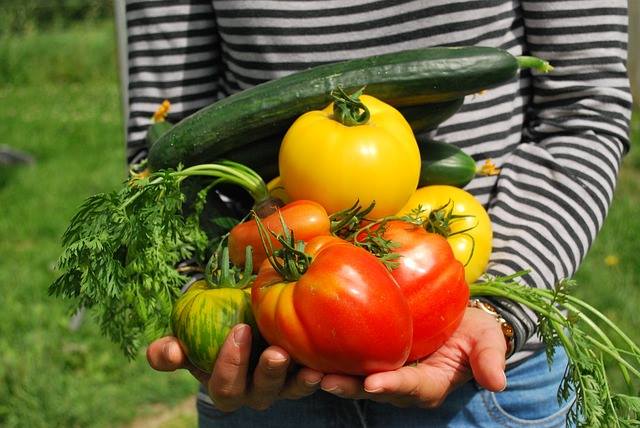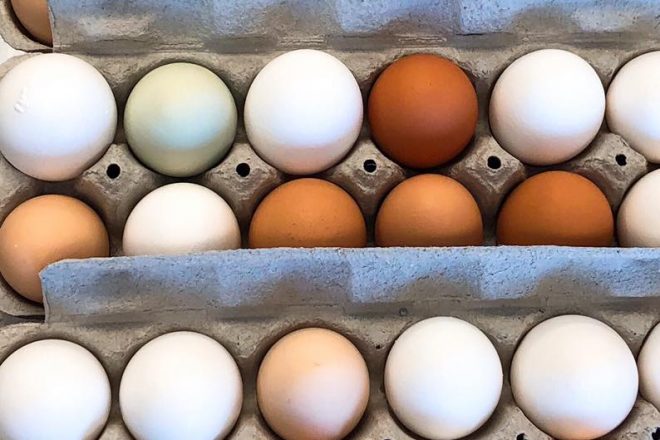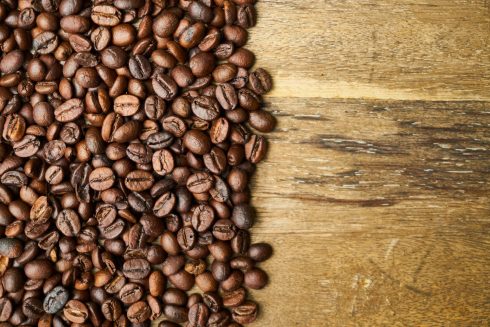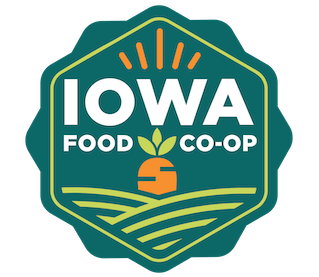Know your farmer, know your food; literally
Our producers are expected to share their growing practices and ingredients with you so you know exactly what is in the food you’re eating. Can’t find the answer? Ask our producers directly. All of their contact info is available to you. We love when consumers establish connections with their food producers. We’re all about transparency and connection.

Certified organic producers use natural processes and materials when developing farming systems. Farmers don’t use any synthetic herbicides, pesticides, fertilizers, antibiotics, hormones, or genetically modified organisms.
Organic livestock are raised mostly on pasture with space for freedom of movement. Feed must be grown without synthetic inputs or genetically modified seeds. Each species has standards for their care, covering space and shelter requirements, accommodations for natural behaviors, use of 100% organic feed, and no use of antibiotics or hormones. However, organic producers are required to treat sick animals. Treated animals are sold into the conventional market.
Find more info here: US Dept of Agriculture
Requires an Organic Certificate from the producer, while recognizing that a producer’s access to a processing plant that is also Certified Organic might be extremely limited. The animal is Certified Organic, however the processing facility is not. Or in some cases, the animal is Certified Organic but the added seasonings are not.
Find more info here: PCO Certified Organic
This certification requires the same standards set forth by the USDA for organic production, however certification is carried out through peer inspections thereby reducing cost and paperwork.
Find more info here: Certified Naturally Grown
Animal Welfare Certified (Global Animal Partnership) uses a tiered labeling strategy, signaling to consumers how the animals were raised. There are 5+ levels of certifications for animal production including assessment of enriched environment, outdoor access, pasture raised, animal centered and entire life on the farm. The producer profile will have specifics on their level of certification.
Find more info here: Global Animal Partnership
Beef, Pork & Lamb only – all other animals require minimum grain levels. Defined by the USDA. The animal has only consumed forages and milk for the entire length of their life. Grains and grain by-products are NEVER EVER consumed by the animal.
Find more info here: US Dept. of Agriculture
The Real Organic Project’s goal is to create an add-on label to USDA Certified Organic certification to provide more transparency on these farming practices. USDA Organic Certification is a prerequisite to participate in the add-on program. The USDA Organic Certification label has recently embraced hydroponics and has dropped the proposed rule on animal welfare however, the Real Organic Project believes that crops grown in soil and livestock raised on pasture-based systems are fundamental to organic farming.
Find more info here: Real Organic Project
Regenerative Organic Certified is certification for food, textiles, and personal care ingredients. ROC farms and products meet the highest standards in the world for soil health, animal welfare, and farmworker fairness.
Find more info here: Regenerative Organic Certified
The Demeter Biodynamic® Farm Standard is a comprehensive organic farming method that requires the creation and management of a closed system minimally dependent on imported materials, and instead meets its needs from the living dynamics of the farm itself.
Find more info here: Demeter USA
Product does not contain meat, fish, fowl, animal by-products, eggs or egg products, milk or milk products, honey or honey bee products, insects or products from insects such as silk or dyes, or sugar filtered with bone char or be processed with any animal products or by-products. Product involves no animal testing of ingredients or finished product.
Find more info here: Certified Vegan
The manufacturer has followed stringent steps to prevent gluten cross-contamination and that the food has been independently tested by a third-party for the presence of gluten.
The Fair Trade Certified seal on a product signifies that it was made according to rigorous fair trade standards that promote sustainable livelihoods, safe working conditions, protection of the environment, and strong, transparent supply chains.
Find more info here: Fair Trade Certified


Self-Declared:
While not all producers carry third party certifications many use responsible practices for growing, raising and making the products they sell. The best way to learn about a producer’s practices is to read about them in their producer profile or if you have any questions, don’t hesitate to ask them directly. We believe connections between producers and customers is what will build a stronger, more resiliant local food system!
Animals must have access to outdoors, but it is not necessarily covered with vegetation. See producer profile for most accurate information.
Animals must have access to outdoor field mainly covered with substantial living vegetation, often known as “grass-fed”. For beef, pork and lamb, the animal spends some time foraging and is also fed some portion of grains and grain by-products. See producer profile for most accurate information.
Beef, pork & Lamb only. IFC follows the definition provided by the USDA. This is a self-declared label.
Find more info here: US Dept. of Agriculture
